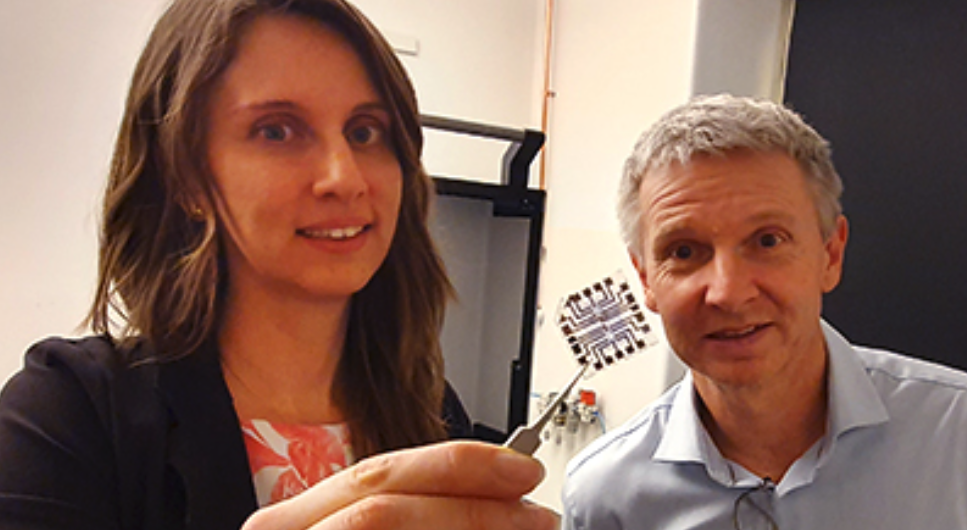A research team at KTH Royal Institute of Technology and Stockholm University has made a bioelectronics and sensor technology breakthrough. The team unveiled a fast-prototyping technique utilizing a standard Nanoscribe 3D microprinter, revolutionizing the fabrication of electrochemical transistors. Without needing cleanroom environments, solvents, or chemicals, the researchers successfully hacked 3D microprinters to laser print and micropattern semiconducting, conducting, and insulating polymers.
This novel method, reported in the journal Advanced Science, is crucial in rapidly prototyping electrochemical transistors for applications such as medical implants, wearable electronics, and biosensors.
The method can potentially substitute time-consuming processes that necessitate a costly cleanroom environment. According to Erica Zeglio, co-author of the study and a faculty researcher affiliated with Digital Futures, it also avoids using solvents and developer baths, which typically contribute to a negative environmental impact.
The applications range from monitoring living tissues to diagnosing diseases in point-of-care testing. With funding from various sources, including Digital Futures and the European Union’s Horizon 2020 program, this groundbreaking method accelerates bioelectronics research for more sustainable and cost-effective alternatives in the field.
Find out more in the article “3D microprinter hacked to fabricate transistors for bioelectronics” by David Callahan at KTH.
Photo: Erica Zeglio, left, with co-author KTH professor Frank Niklaus showing a finished transistor.





